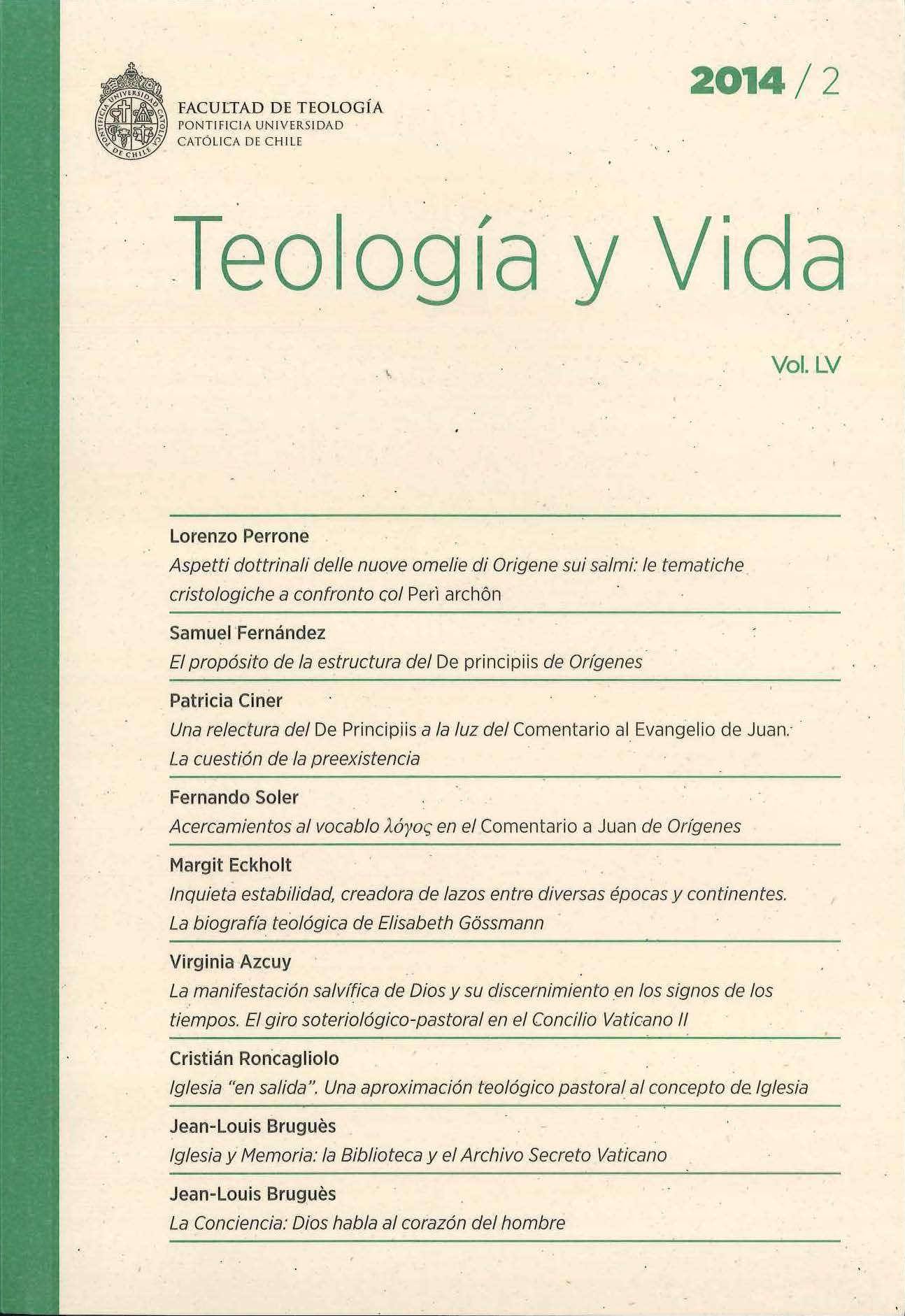“Inquieta estabilidad”, creadora de lazos entre diversas épocas y continentes. La biografía teológica de Elisabeth Gössmann
Contenido principal del artículo
Resumen
Resumen: Elisabeth Gössmann es una de las pioneras de la investigación teológica hecha por mujeres en Alemania. Codiscípula, junto con Joseph Ratzinger, del teólogo Michael Schmaus, quien ha dado los impulsos para un nuevo abordaje histórico al dogma, Elisabeth Gössmann, a pesar de estudios valiosos sobre la mariología medieval y sobre la analysis fi dei en la Suma Halensis, no pudo, por ser mujer, ser habilitada en teología dogmática en la Facultad de Teología de München, al comienzo de los años 60. Ella enseñó dogmática en diferentes universidades en Tokio, y después de su habilitación en fi losofía, también en la Universidad de München. Es especialista en la teología medieval, y empieza, en los años 60, en tiempos del Concilio Vaticano II, a investigar el tema de la imagen de la mujer en la tradición de la fe cristiana. Hasta comienzo del siglo XXI, ella publica diferentes estudios sobre la imago Dei referente a las mujeres. Destaca sobre todo su obra sobre Hildegard von Bingen.
Palabras clave: Concilio Vaticano II y el aporte de las mujeres, antropología teológica, teología y historia, investigación teológica femenina (“theologische Frauenforschung”), imago Dei, teología intercultural.
Abstract: Elisabeth Gössmann is one of the pioneers in theological women’s studies in Germany. Along with Joseph Ratzinger she was a student of the theologian Michael Schmaus who infl uenced her with his impulses of a new historical approach in dogmatic theology. Despite her important studies on medieval Mariology and on the “analysis fi dei” of the “Suma Halensis” she was not allowed to habilitate in dogmatic theology at the faculty of theology in Munich at the beginning of the sixties because she was a woman. She taught dogmatic theology at several universities in Tokio and –after her habilitation in philosophy– also in Munich. She is a specialist concerning medieval theology and starts her researches on the image of women in the tradition of the Christian faith in the sixties at the time of the Second Vatican Council. Until the beginning of the 21st century she published several studies on the “imago Dei” in context with women. Especially her study on Hildegard von Bingen has to be emphasized.
Keywords: Second Vatican Council and the contribution of women, theological anthropology, theology and history, theological women’s studies (“theologische Frauenforschung”), “imago dei”, intercultural theology.
Descargas
Detalles del artículo
Los autores de artículos aceptados en Teología y Vida conservan los derechos de propiedad intelectual sobre sus trabajos y otorgan a la revista los permisos de distribución y comunicación pública de los mismos, consintiendo que se publiquen bajo una licencia Creative Commons (BY-NC-ND) 4.0 Internacional, que se otorga por todo el plazo de protección de la obra y con un carácter no exclusivo. La única limitación para el autor es que sólo podrá otorgar licencias no exclusivas sobre su obra. Esta licencia no permite la generación de obras derivadas ni hacer un uso comercial de la obra original, es decir, sólo son posibles los usos y finalidad que no tengan carácter comercial.
Se recomienda a los autores publicar su trabajo en Internet (por ejemplo en páginas institucionales o personales, repositorios, etc.) respetando las condiciones de esta licencia y citando debidamente la fuente original.

